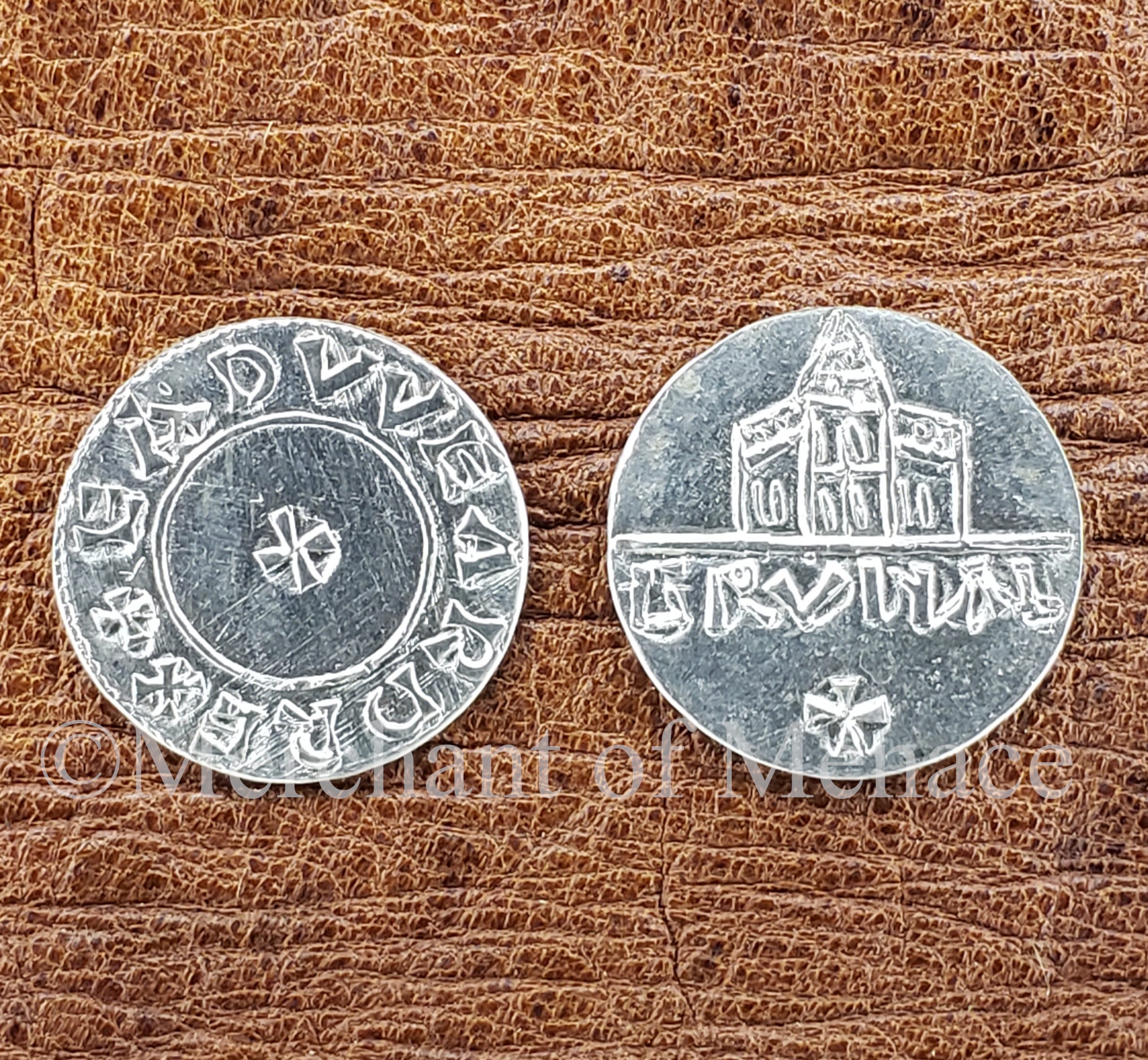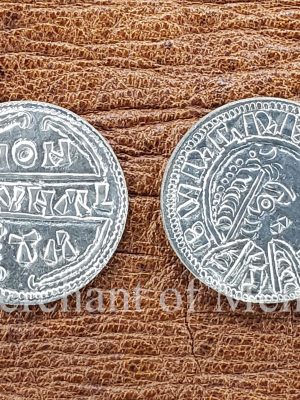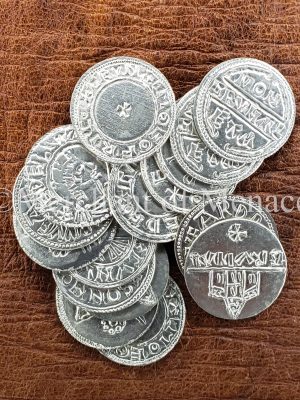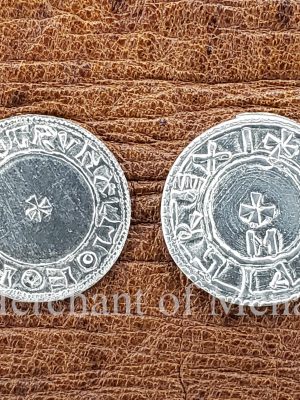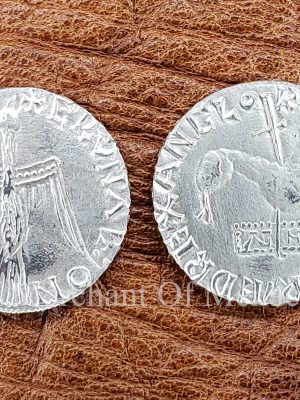Description
Wessex Penny (Saxon), Edward the Elder, Minster type 899-924 AD
Provenance:
Coins of England & the United Kingdom, 44th edition, Spink, 2009, page 109 ref-1075
We are delighted to offer for sale these close copies of the original coin.
The Coin is hand struck with our own hand cut dies, The coin is available in either lead free English Pewter or fine (925) Silver (POA)
These make a great addition to any pouch or Living history dice game, Suitable for all cultures of the period.
These coins are accepted for use within:
The Vikings (NFPS)
Regia Anglorum.
Many other Groups and Societies also accept these for use, if in doubt please check with your group/society Authenticity/Provenance Officer or refer to your kit Guides. If you would like to add your Group or Society to the above list please let us know
King Edward the Elder of Wessex, 899-924 AD
But what do we know about him?
Family.
Edward was the son of Alfred the Great and Ealhswith. She was a daughter of Ethelred, also called Mucill, Ealdorman of the Gaini. He was born about the year 870. As one of at least three Athelings, it was not absolutely certain he would be king after his father. His cousin, Aethelheim, was older and was the son of Alfred’s older brother Athelred of Wessex. When he was about four years old Edward was sent to Rome. There, in a ceremony, he was given a sword, belt and given the rank of consul. This is one of several things Alfred did to make Edward the first choice among the Athelings who would succeed him as king. By a past agreement Alfred had control of most of the royal estates. He could leave all or some to Edward. In the 880s, Alfred made a will giving most of the royal estates to his son Edward, and left his two nephews only modest lands in the eastern part of the realm. This meant that if Ethelhelm were selected as king over Edward, he might not have enough income to support himself as king.
Life as King of Wessex.
Edward ruled from time of his father’s death on 26 October, 899. But he wasn’t coronated until Whitsunday (8 June) of 900. His reign began with his cousin Athelwold, son of King Athelred, seizing the royal manors of Wimborne and Christchurch. When Edward confronted him Athelwold fled. He left behind a nun he had abducted. Athelwold was accepted by the Danes of Northumbria. There he was elected King of York. In 901 Athelwold was in Essex with a fleet he raised over seas. In 902 he convinced a Danish army in East Anglia to raid into Wessex and Mercia with him. In response Edward led his army into East Anglia and destroyed the countryside. Edward ordered his troops to retire back to Wessex, but the Kentish men disobeyed his orders and stayed behind. The Danish army quickly caught up with them. In the battle that followed, Ethelwald was killed.
Edward continued his wars against the Danes. He received a great deal of aid from his sister, Ethelflaeda. She had married Ethelred of Mercia and at his death she became the leader of the Mercians. Together Edward and Ethelflaeda defeated the Danes in numerous battles. But Ethelflaeda also built a line of fortresses on the Mercian Frontier. This was what her father Alfred the Great had done on the Wessex borders with the Danish held territories. Edward began to use these fortresses differently. Not just for defence of his own lands he used them to hold captured lands. Edward and his sister were very successful against the Danes. So much so they quit raiding into Wessex and Mercia. Freed of wars with the Danes, Edward could attend to other issues. He brought Strathclyde and parts of Northumbria under his control. He also brought Mercia under his direct rule after his sister Ethelflaeda died. The appearance of the Viking leader Ragnvald in York slowed his progress. But by the end of his reign he had control of all lands south of the River Humber. In a treaty Ragnvald, the kings of Strathclyde and the Scots recognised his rule.
In 924 Mercian nobles wanting to be free of Edward’s rule made an alliance with the Welsh. Edward quickly put down the rebellion and placed a garrison in the town of Chester. But this expedition proved to be his last. Edward died 17 July 924. Before the end of the year his son Athelstan was recognised as the rightful king.

